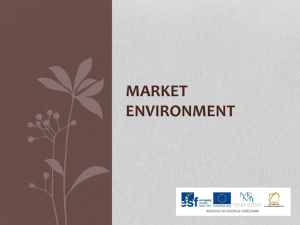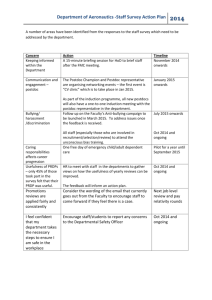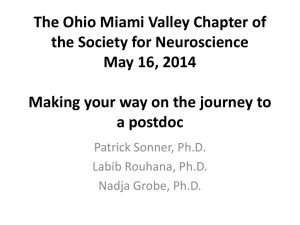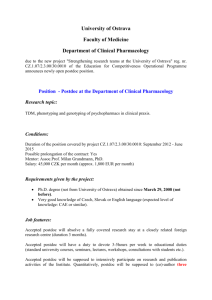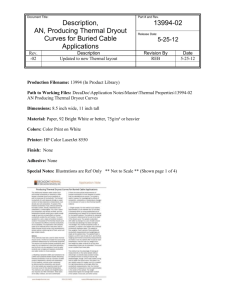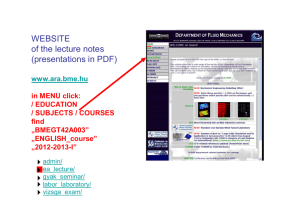Postdoc research focus on Bio-Environment control A key factor in
advertisement
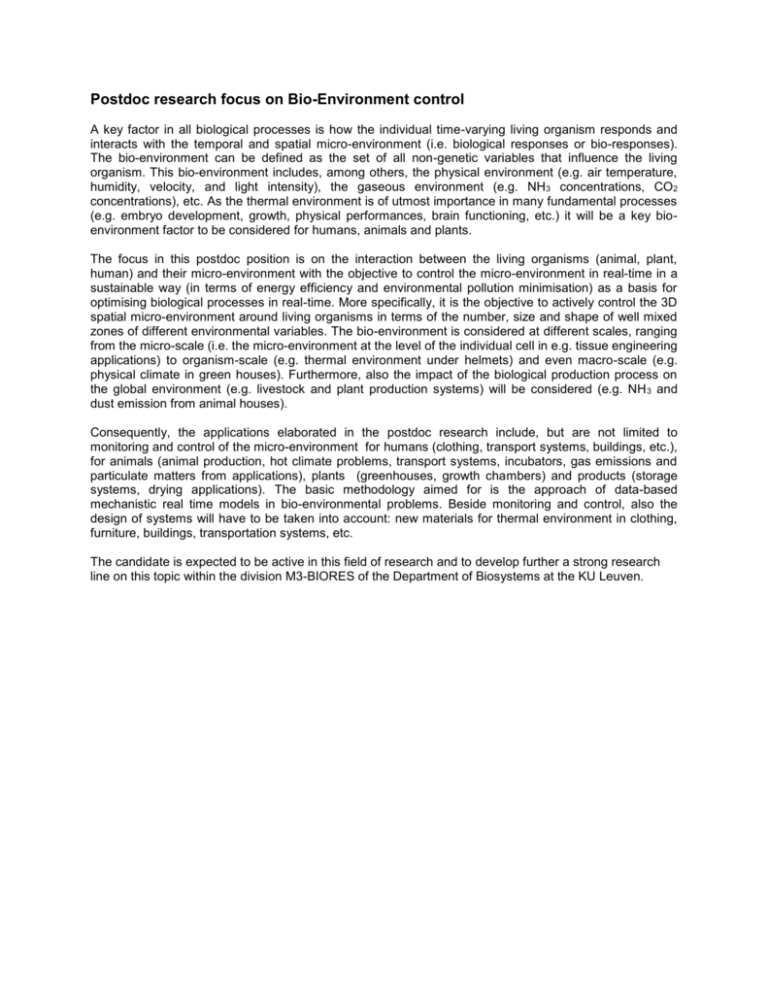
Postdoc research focus on Bio-Environment control A key factor in all biological processes is how the individual time-varying living organism responds and interacts with the temporal and spatial micro-environment (i.e. biological responses or bio-responses). The bio-environment can be defined as the set of all non-genetic variables that influence the living organism. This bio-environment includes, among others, the physical environment (e.g. air temperature, humidity, velocity, and light intensity), the gaseous environment (e.g. NH3 concentrations, CO2 concentrations), etc. As the thermal environment is of utmost importance in many fundamental processes (e.g. embryo development, growth, physical performances, brain functioning, etc.) it will be a key bioenvironment factor to be considered for humans, animals and plants. The focus in this postdoc position is on the interaction between the living organisms (animal, plant, human) and their micro-environment with the objective to control the micro-environment in real-time in a sustainable way (in terms of energy efficiency and environmental pollution minimisation) as a basis for optimising biological processes in real-time. More specifically, it is the objective to actively control the 3D spatial micro-environment around living organisms in terms of the number, size and shape of well mixed zones of different environmental variables. The bio-environment is considered at different scales, ranging from the micro-scale (i.e. the micro-environment at the level of the individual cell in e.g. tissue engineering applications) to organism-scale (e.g. thermal environment under helmets) and even macro-scale (e.g. physical climate in green houses). Furthermore, also the impact of the biological production process on the global environment (e.g. livestock and plant production systems) will be considered (e.g. NH 3 and dust emission from animal houses). Consequently, the applications elaborated in the postdoc research include, but are not limited to monitoring and control of the micro-environment for humans (clothing, transport systems, buildings, etc.), for animals (animal production, hot climate problems, transport systems, incubators, gas emissions and particulate matters from applications), plants (greenhouses, growth chambers) and products (storage systems, drying applications). The basic methodology aimed for is the approach of data-based mechanistic real time models in bio-environmental problems. Beside monitoring and control, also the design of systems will have to be taken into account: new materials for thermal environment in clothing, furniture, buildings, transportation systems, etc. The candidate is expected to be active in this field of research and to develop further a strong research line on this topic within the division M3-BIORES of the Department of Biosystems at the KU Leuven.
